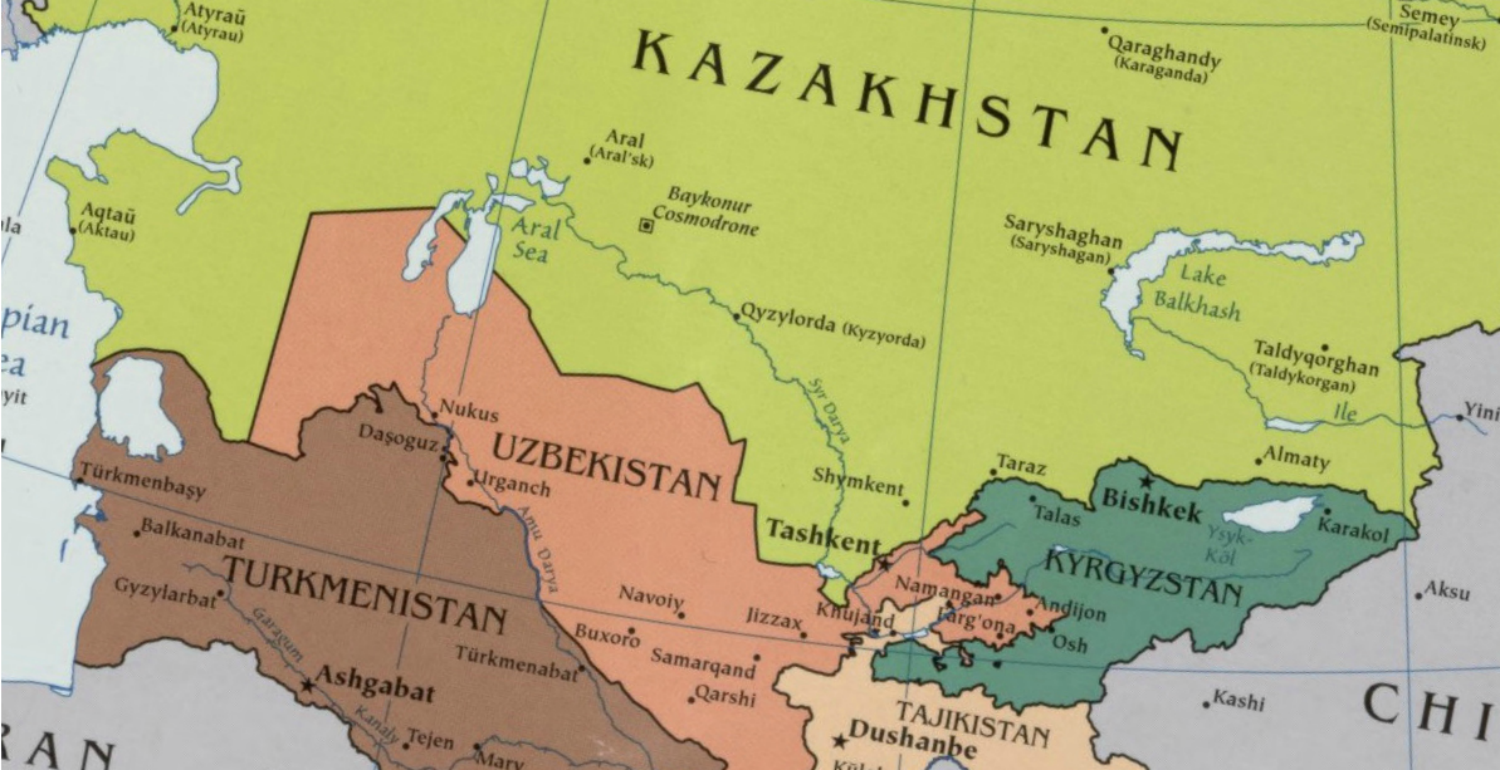By Janice Helwig
Policy Advisor
The Organization for Security and Cooperation in Europe (OSCE) – together with the United Nations Office for Drug Control and Crime Prevention (UNODCCP) – organized the Bishkek International Conference on Enhancing Security and Stability in Central Asia from December 13-14, 2001 to discuss ways in which the Central Asian countries can contribute to the global fight against terrorism.
The conference was a step in implementing the OSCE Action Plan for Combating Terrorism, adopted by the OSCE participating States at the Bucharest Ministerial Meeting earlier in December. The meeting culminated with the adoption of a political declaration and an action program outlining areas where international assistance is particularly needed. (All documents are available on the OSCE website at www.osce.org) The conference also gave State authorities a chance to share experiences and ideas with each other; Spain and the United Kingdom, in particular, discussed lessons they had learned in combating terrorism in their countries. OSCE States had the opportunity to exchange views with countries not normally included in OSCE meetings, such as Pakistan, Iran, India, and China. The goal of the conference was to progress from discussion to action by identifying concrete areas for international assistance to Central Asia in fighting terrorism. The success of the conference depends on whether OSCE States and international organizations follow up on the areas identified and come forward with projects and funding.
Kyrgyz President Askar Akaev opened the meeting, and Kyrgyz Foreign Minister Imanaliev also participated. In addition to OSCE participating States, then Chairman-in-Office Romanian Foreign Minister Mircea Geoana attended the conference, as did representatives from several OSCE Institutions – including High Commissioner on National Minorities Rolf Ekeus, Director of ODIHR Gerard Stoudmann, OSCE Secretary General Jan Kubis, and OSCE Parliamentary Assembly Vice-President Ahmet Tan. In addition to UNODCCP, several other international organizations participated, including the Organization of Islamic Conference (OIC), and the International Organization for Migration (IOM).
President Akaev stressed the importance of international support for a neutral Afghanistan that will no longer be a haven for extremism, drugs, or terrorism. Kyrgyzstan and other Central Asian states had been pointing out the potential for violence, terrorism, and extremism to spill over from Afghanistan for several years, he noted, but the international community had taken no preventive steps. International efforts to combat terrorism now need to be more proactive. Poverty must be addressed throughout the region in order to minimize the possibility of its being exploited by terrorists to gain followers. All Central Asian states asked for technical and financial assistance, particularly to fight drug trafficking and organized crime, which are often sources of funding for terrorist organizations.
The U.S. delegation was co-headed by Stephan M. Minikes, U.S. Ambassador to the OSCE, and Steven Monblatt, Deputy Coordinator in the State Department Office of the Coordinator for Counter Terrorism. Other members of the delegation included representatives from the State Department’s Bureaus of Democracy, Human Rights, and Labor, and of International and Law Enforcement Affairs, as well as a representative of the CSCE. Ambassador Minikes summed up the U.S. position in his closing statement, “We must ensure that our societies are ones in which terrorists cannot thrive, that our societies are ones in which human rights are respected, and in which rule of law, freedom of expression, tolerance, and democracy strengthen stability. As so many noted in Bishkek, societies of inclusion, with economic opportunities for all, pluralistic debate, a political commitment to conflict resolution, and where integration does not mean losing one’s identity, are those where extremists have the least chance of generating sympathy and support from the moderate majority.”
Other OSCE States discussed the importance of a concerted international effort against terrorism that includes fostering human rights, the rule of law, and economic development. The delegations of the United Kingdom and Spain shared their experiences fighting terrorism. The UK underscored that, based on lessons learned in Northern Ireland, respect for rule of law and human rights must be the basis for any approach to fighting terrorism; otherwise, authorities lose the moral high ground and the support of moderates. In addition, free political debate is essential to provide a peaceful alternative for dissenting views and prevent terrorists from gaining the support of those who share their views but not their methods.
ODIHR Director Stoudmann stressed the need for caution as new procedures and legislation are put in place to combat terrorism; government authorities should not, above all, use terrorism as an excuse to rid themselves of opposition or dissent, he suggested. He offered ODIHR’s services in reviewing draft anti-terrorism legislation to ensure that international standards are upheld.
In the political declaration, states participating in the conference pledged to work together against terrorism in full conformity with their OSCE commitments and fully respect human rights and the rule of law. They rejected the identification of terrorism with any particular religion or culture. They also noted that, as a neighbor to Afghanistan, the Central Asian region has been exposed to specific challenges and threats to security and therefore needs particular assistance in combating terrorism.
The program of action outlined the following priorities for concrete programs:
- Promoting ratification and implementation of international conventions related to combating terrorism;
- Enhancing cooperation between both national and international agencies involved in combating terrorism and in fighting crime;
- Adopting national anti-money laundering legislation and create corresponding structures;
- Increasing cooperation in the protection of human rights and in strengthening rule of law and democratic institutions;
- Assisting judicial systems through training and strengthening independence;
- Fostering political dialogue, including through political parties, civil society, and free media;
- Addressing economic problems, including through programs to attract investment;
- Assisting Central Asian states in controlling their borders, particularly with regard to drug trafficking; and
- Encouraging joint training and operational activities among the countries of Central Asia.








